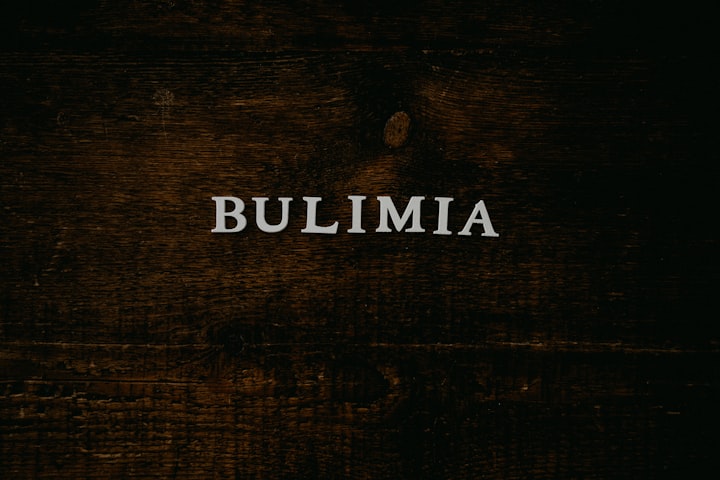
It’s filthy money from filthy language. $20,000, the grand total from throwing a handful of change in the swear jar every time I said F—, S—, G—d—, B—, J— F— C—, et al., over the course of the past seventy years. Well, I promised my wife not to include any of that in here.
Truly, this is for her. Mona had an infatuation with words just contagious enough to make me realize how little I cared about language. “Laconic”—that’s the word she used to describe me, a “euphemism”, she said, that meant a man of very few words, and not often a very good few, either. I would like to think I’ve gotten better, but as the swear jar testifies, I’m not a man with much restraint. Rather than being earnest, I’m promising my wife to be more like Ernest, Hemingway, one of her heroes. He was a man who knew what needed to be said.
The conception of the swear jar came about on the first night I met my wife. I had been out at the World Fair with a couple of frat mates from Knox College, and they had invited some girls from Victoria, the other end of campus. Mona was among them. I remember her in a checkered orange dress (“Gingham,” as she corrects me every time I retell this story) the hem of which ended dangerously, “precariously,” at the middle of her thigh. Walking behind her, I wasn’t as discreet as I could’ve been, I leaned over and murmured to one of the guys, I’ll tell ya, that’s a G—d— looker. She jerked her head back and for a moment, we were a couple of kids caught colouring on the wall. You oughta start a swear jar with that mouth, mister. Now, back then, I hadn’t loved Mona yet and I was a different man, I grinned, It’s not like I said you’re a G—d— hooker! The horrified faces on the lot of them, you’d think I’d actually reached out and hit her, and Mona just sort of taking it in, “unperturbed,” until she stretched out her hand as if asking me for cash, And that makes three times. Behind her, one of the guys sneering and telling me to pay up. To get them all off my back, I pulled a couple of coins out of my pocket and dropped them into her open hand, Keep the g—d— change, and overtook them in line as the jeers and whistles erupted from behind me.
That was the first time, and in between then and our wedding day I gave Mona a lot more change. As evidenced, I’ve never had a good handle on my social graces, and a few more instances involving Mona come to mind. The second time we met, I saw Mona at the public library; an odd place for me to be, but the truth is, I’d heard she worked there. She was huddled in a corner of General Fiction, next to a cart of books to be re-shelved. I tapped her on the shoulder, Miss, do you think you could help me, I’m looking for a book. I felt my confidence wane as she turned to look at me, Oh, it’s you, with a cool little smile, if you’re looking for the thesauruses it’s the Reference aisle you’ll want, or religious texts are on that side, if you’re feeling contrite about anything in particular. I could play her game. You know, I think I’d much rather hear about what you like to read, so tell me, who’s your favourite? I’m not sure why you care to know, she said after a beat, but it would be anything by Hemingway, I admire his short and declarative sentences. Jackpot—I’d read the man as part of first-year Literature Studies. Hemingway, eh, I’ve read some of his stuff, sure, he also lived in Toronto for a bit, Then you would know, she said tersely, that he was a man who went great lengths to avoid upsetting anyone with crass language, Are you kidding me, Hemingway, he censored himself so that the publishers couldn’t put tape over his mouth, got away with changing a letter here and there but it’s clear what he meant. She seemed unsure of herself, I’m not sure I follow. Well, I put a hand benevolently on her shoulder, Miss Mona, let’s take For Whom the Bell Tolls, in which my good fellow uses thinly-veiled invective like, ‘Oh, muck my grandfather and muck this whole treacherous muck-faced mucking country and every mucking Spaniard in it,’ not very hard to guess what he’s getting at, oh, and my personal favourite, ‘I obscenity in the milk of your ancestors,’ I couldn’t help but chuckle in that moment, Like a distant relative spitting in your face. By her expression, I knew I had won the conversation, but not her heart, and it was my mounting doubt at the success of my strategy that led to the next topic of conversation. Well, you know, I’ve added a lot to the swear jar today, haven’t I, we have Hemingway to thank for that. I took out my wallet and handed her more than what I owed for my trespasses. She would tell me much later that she had been impressed by my ready knowledge of Hemingway’s pseudo-expletives, but less impressed by my ready dedication to defending them, and we would learn to live with this recurring theme in the narrative of our lives.
After our Hemingway exchange, I never went back to the library. Although her initial fiery demeanour had sparked my intrigue, it was during the second encounter that I realized boldness did not come naturally to her, and if this was the case, my advances would cause her more grief than amusement. I knew from our brief interactions that she held strong convictions, and in a way, so did I; not that I didn’t care to change, but rather I did not think change possible, and for her to assume it was would point us both down a path of disappointment and frustration.
But by some peculiarity of the universe, or if Mona herself were telling the story, she would say it was by the hand of the God that she worshipped, we encountered each other for the third time while waiting for a streetcar to Union station. Shortly after a brief exchange of formalities, Hullo, Hullo, the streetcar arrived and we piled on uncomfortably.
We stood holding the same pole and I searched for common ground. Look, I said, broaching the only topic that mattered, I’ll admit, at the fair, I wasn’t very nice, and I’m sorry, really though, it was what you said after that made me think, wow, who the h— is this broad, asking me for money in front of all my friends? Silence. I’m sorry, You should be sorry, Honestly, it feels like after every conversation we have, all I can think is, ‘God, I shouldn’t have said that,’ I would appreciate if you didn’t take the Lord’s name in vain, Oh, is ‘God’ a swear too, Christ, I’m sorry, I’ll be more careful. I hated who I was in the conversation, an obsequious, blithering idiot, pandering to the sensibilities of this woman I hardly knew. Again, her stony silence. I felt like I had lost, with no one sure what the game was. I thought that I would never see her again after we alighted at Union, so I tried again, I admire how devout you are, it must be hard to watch your words around God and such. I might have imagined it, but I remember her shaking her head, and something changing in her countenance. It doesn’t take faith, she said, to grasp the weight of words.
But Mona, that was where you were wrong. It was precisely because I didn’t have faith that I felt the weight of words was lost on me. It takes faith to change. It took faith for you to want to see me again after that, to ask for the money I owed the swear jar after profaning with H— and G— and C— on that streetcar ride, and faith to ask me please, don’t make me ask for any more of your money. It took faith for you to think I would humour your little swear jar game, but lo and behold, I did. And maybe it was because of how willingly I adhered to the rules of the swear jar, that I thought I could adhere to any other rules you set too, and if I broke the rules, I’d have to pay, but despite my habitual failures, you would still love me.
To this day, I can’t say for certain if your faith in me was in vain. There’s a reason the swear jar had $20,000 when I opened it up today. I remember other seemingly less significant times, that when compounded on top of everything, makes the grand total absolutely make sense. There was the time when you struggled to lift that bookcase by yourself, and I, without thinking, said, This looks like a two-man job, just like my ex-girlfriend, and you gave me the cold shoulder for a couple of days. The swear money for that one came after I went home, and reflected on how f—ing stupid I had been to say that. I wanted to be as honest as possible; I started paying the jar every time I thought the words too. Another simpler example: waiting for you at the altar on our wedding day, and seeing you veiled and radiant, and then, I felt the tears well, but I was in front of all our friends and family so I told myself, you’ve got to get your s— together. Another time, Mona, I’m sorry, was today at the hospital, at your bed, when we both knew the end of the day would bring other, bigger things to a close as well, one of which was the swear jar, because you wouldn’t be here to keep me accountable anymore. The money came from when you handed me this notebook, This is different from your thoughts and your speech, your written word is always a deliberate choice, and I understood what you meant. Unwholesome language is reactionary, but every word I’ve written here has purpose, has weight, and you’re giving me a way to take control.
And Mona, I’ve come to realize, I only said what I said when I couldn’t figure out what to say. That first night at the Fair, when I took in the image of you, the word ‘beautiful’ just wasn’t enough, nor the word ‘lovely,’ nor ‘gorgeous’. The moonlight that pooled in your collarbone was beautiful; your hair, little leaps and flourishes like cursive writing down your back, was lovely. The canopy of stars above you, your face filled with wonder backlit by a garish carnival fever dream—that was gorgeous. The words I should’ve used—or rather, I should say, the words anyone else would’ve used—were only enough for individual parts of you, only enough to describe synecdoches for you. I think back to the joke you often made when I had a particularly bad lapse in language, God never told me I was going to be a sailor’s wife, with a wryness that both lifted and condemned me. Well, Mona, I do feel lost at sea without you, like old man Santiago adrift on the waters. I guess Hemingway will forever be ours.
It was my wife that taught me to grasp the weight of words, and by her same hand, I’m learning to put them to use. It took seventy years living with her, living with myself, but I swear, all I needed was a little black notebook and a reason to use my words for good.
About the Creator
Sharon Lo
I have Sushi Bong on speed dial






Comments
There are no comments for this story
Be the first to respond and start the conversation.